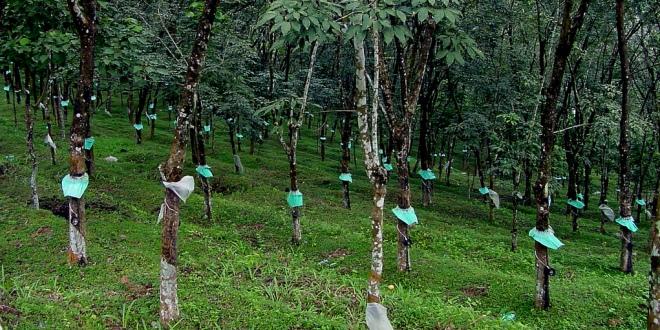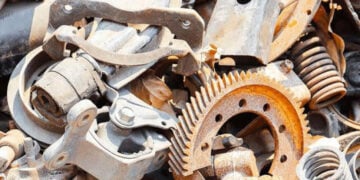Though a little capital intensive due to current cost of acquiring disease control measures, nonetheless, Small Holder farmers of rubber, stand great chances of building clusters and generating as much as N800,000 daily from the business.
Hevea brasiliensis, which is commonly referred to as Natural Rubber (NR) is a term applied to a wide variety of elastic substances produced from over 500 plant species.
Presently in Nigeria, the major rubber producing states are found in the southern part of the country where high rainfall is experienced.
It is commercially grown in Osun, Abia, Anambra, Bayelsa, Akwa Ibom, Rivers, Ondo, Edo, Ogun, Delta and Cross River states.
However, advances in plant breeding techniques have given rise to the development of dwarf rubber trees with lower rainfall tolerance.
As a result of assiduous research and development programmes, NR tree is now grown in Kogi, Niger, Plateau, Taraba, Kaduna and Benue states and today, rubber plantation can be established in 24 out of 36 States of the federation.
Owing to its elasticity, resilience, and toughness among other properties, NR is the basic constituent of many products used in the transportation, industrial, consumer, hygienic, and medical sectors.
Tyres and tyre products account for more than 50 per cent of natural rubber (NR) usage, making transportation the leading single sector of the major uses of rubber. Automobile tyres truck and bus tyres, make up the prime outlet for natural rubber.
Industrial products such as hoses and tubes, industrial lining, transmission and elevator belts, bridge bearings, and consumer products such as golf balls, erasers, footballs, footwear, and other apparels account for the remaining usage of rubber. Articles used in the medical and health sector, notably, condoms, catheters, and surgical gloves as well as seismic materials (for instance, over 500 and 2,500 buildings are respectively fitted with seismic rubber bearings in China and Japan) are products of rubber.
Business Capital
The chairman, Kwara State National Rubber Producers, Processor and Marketer Association of Nigeria, Prince Alex Ogundele (JP), shared investment brief with me during a chat.
Ogundele said, to acquire land, prepare it, source for seedlings, planting, weeding, pests and disease control, on one hectare of land, will cost about N5 million.
Profitability
Stating that income is actually guaranteed after a successful harvest on one hectare of farmland, he says an investor is expected to have about 555 rubber trees on a flat land area and so, the average yield is about 4280kg. The market value of rubber at the time of harvest determines the income, but an average of N800, 000 per day, he says.
To him, “the gestation, (maturity) period is 5-6 years and tapping starts the following year for up to a period of 50 years. However, lack of grants, funding , loans with low interest, land tussles, and seedlings with farm materials needs appear to be inhibiting factors disrupting the business.”





